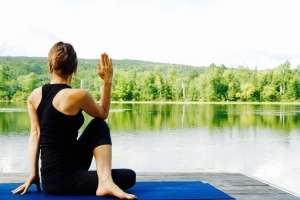The sensation of discomfort, anxiety attack, or panic anxiety is characterized by the onset of pronounced discomfort, which can become chronic and affect daily life. Discover our tips to soothe anxiety and help you quickly regain well-being and serenity!
Anxiety: why is it manifested?
Anxiety is the outcome of repeated exposure to stress. It's a worry, an anticipation, about what might happen.
There are two distinct forms of anxiety:
Transient or "normal" anxiety which announces an immediate danger to which our body responds by fighting or fleeing depending on the situation,
Generalized anxiety or "anxiety disorder" which is a chronic form with constant worrying for no specific reason.
Panic attacks, agoraphobia, claustrophobia are aggravated forms of anxiety, and their intensity and frequency can differ from one person to another. Moreover, the symptoms can appear at any time and do not cease to aggravate the psychological suffering, which is already well established.
During an anxiety episode, such as an exam, a professional conflict, a late appointment, a traffic jam, or a disagreement with someone, everything becomes a tragedy, whether because of a real problem or a trivial trifle.
Tips to treat and soothe anxiety
Anxiety can be eased when it starts to take over in our lives. We can then try to set up certain reflexes that will help to manage it better and to lower the level of stress as we go, to gradually find calm and serenity:
1. Accept your situation
The more we suffer, the more we tend to feel bad about the discomfort we feel. A real vicious cycle then begins: we feel guilt, which thus fuels stress and the development or reinforcement of anxiety. Accepting that we are currently suffering is the first step in understanding our situation and developing more positive habits.
2. Practice abdominal breathing to fight your anxiety naturally
Nothing could be simpler than breathing. Since it is a physiological mechanism and independent of our will. But do you know how to breathe? There are two types of breaths: chest breathing and abdominal breathing.
Although chest breathing under stress only fills 30% of the lungs and causes breathlessness from oxygen deficiency, abdominal breathing goes through the lower body and provides a big amplitude of the lungs for real breathing. It can, therefore, help to calm your anxieties.
Plus, it's a real relaxation exercise!
Lying on the floor, placing your hands on your side,
inhale through the nose while inflating the belly,
block your breathing for seconds, then exhale through your mouth, completely emptying your lungs and hollowing out your belly.
About ten cycles should be enough to soothe you.
3. Stay away from social networks and distance yourself from the news
To cure anxiety, moving away from all the negatives can also help you feel better and focus on the positive. The current health situation has now been omnipresent in the media for several months, which has the effect of amplifying this collective phenomenon of anxiety and uncertainty about the future. Getting away from the news and social media as much as possible is an easy way to occupy your mind with more relaxing or positive activities, such as sports or meditation.
4. Enjoy nature
Going out for some fresh air and taking a walk in the middle of nature or in a park near your home is one of the most effective anti-anxiety treatments for stopping the flood of negative thoughts that can invade everyday life. If you live in the city, why not take your lunch break in this park located 10 minutes from your office? Or take a 15-minute break at the end of your day to move on with that book you can't seem to finish? Also, take advantage of the weekend to clear your mind and avoid thinking about the past week or the week to come.
5. Exercise to release the pressure
To fight against anxiety and, more generally against stress, the practice of physical activity is more than recommended. By secretion of endorphin and dopamine, sport helps you increase your level of well-being and release the accumulated pressure. For a double-action, opt for outdoor sports activities to benefit from the natural light and a good breath of fresh air!
6. Pay attention to your sleep and diet
When anxiety lasts several days, weeks, or months, the biological rhythm is very often disturbed. As a result, sleep disorders can appear and eating behaviors that promote excess sugar, for example. So try as far as possible to help restful sleep by listening, for example, to podcasts to sleep well and by favoring foods rich in vitamins and minerals and omega-3s, known for their positive action on the nervous system.
7. Temperature
You certainly have noticed that the cold tends to accentuate your muscular tensions. To limit anxiety, choose an environment warm enough to relax your body. A sauna, a hot bath, a tea… all means are good to raise the temperature by a few degrees and increase your well-being.
8. Therapy
A therapist can help you understand and control your anxiety. Different types of therapy can help people manage their anxiety disorder. Your doctor can recommend a therapist for you.
9. Meditation
More and more studies have looked at the antidepressant effect of meditation. Its soothing properties are particularly useful for people with anxiety. By devoting a few minutes a day to a simple awareness of the present moment, you leave less room for daily anxieties.
10. Medication
Medications are effective for some types of anxiety disorders, but not for everyone. Ask your doctor if medication would be a good solution. If you are prescribed medication for your anxiety disorder, pay attention to how you feel each day and see your doctor if you have side effects.






